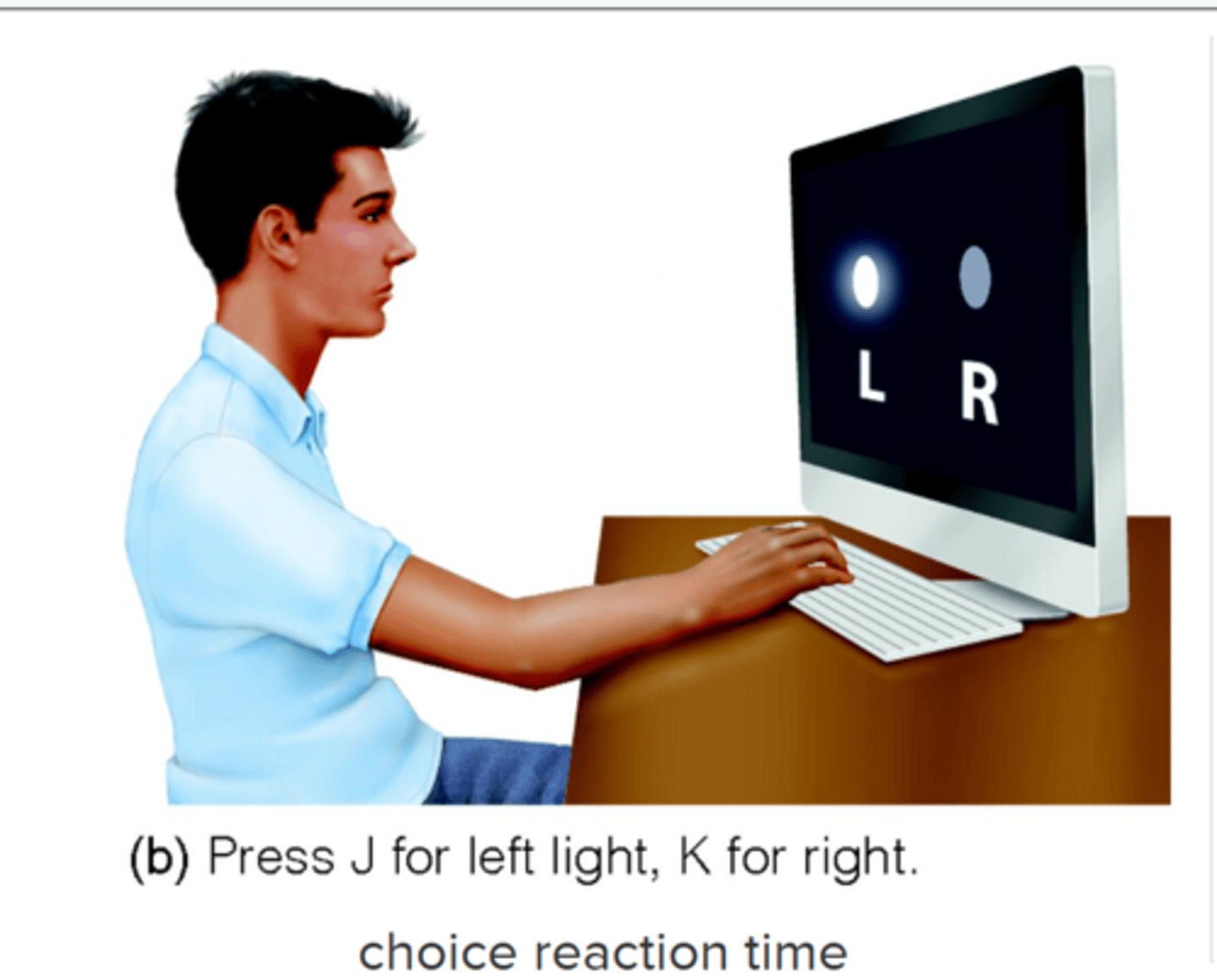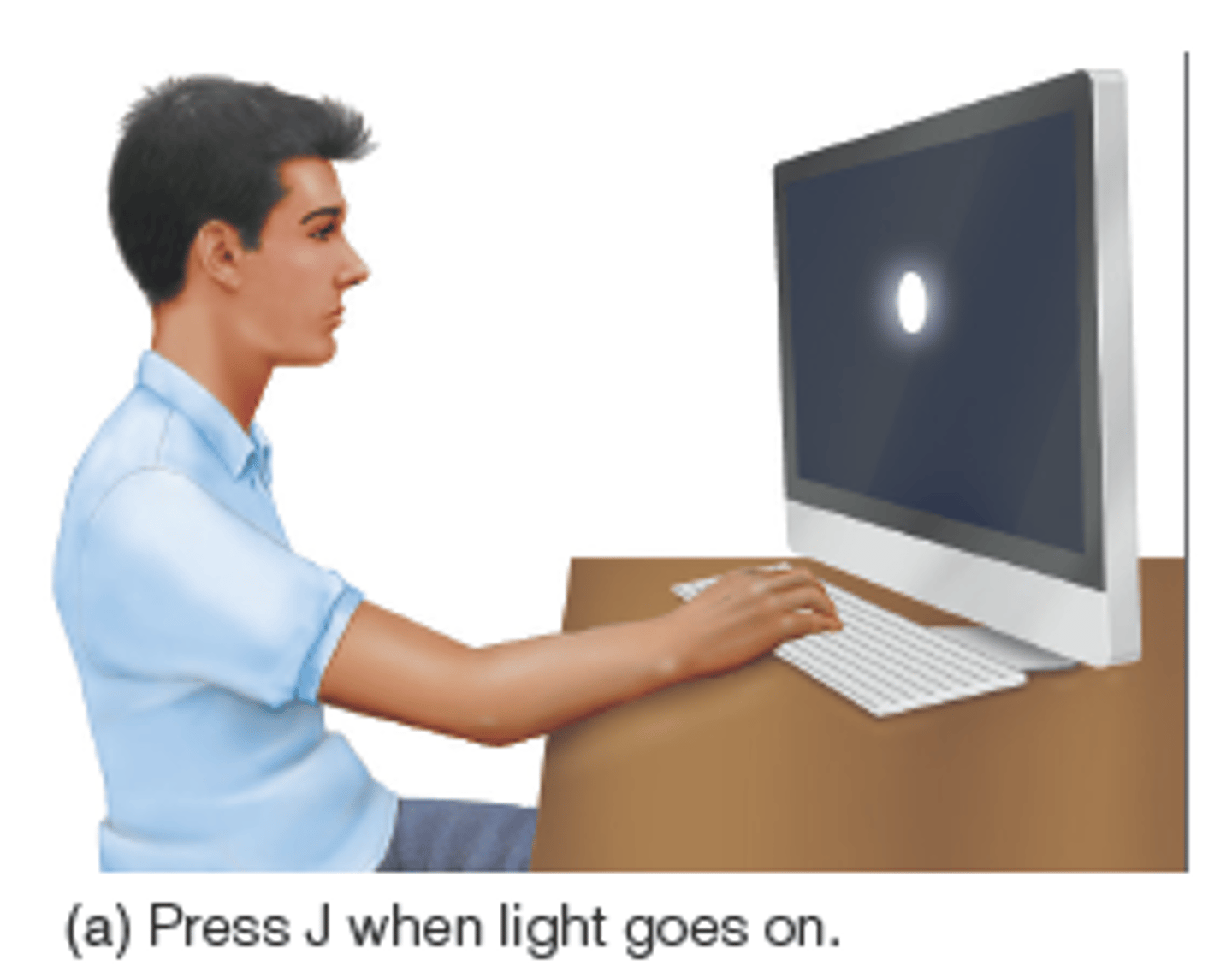Chapter 1 Mastery Training
1/26
Earn XP
Description and Tags
Chapter 1: Introduction to Cognitive Psychology
Name | Mastery | Learn | Test | Matching | Spaced |
|---|
No study sessions yet.
27 Terms
OPERANT CONDITIONING
Theory that behavior is strengthened by presentation of positive reinforcers or withdrawal of negative reinforcers
SCIENTIFIC REVOLUTION
Occurs when there is a shift in thinking from one scientific paradigm to another
COGNITIVE REVOLUTION
Shift in psychology from the behaviorist approach to explaining behavior in terms of the mind
SAVINGS CURVE
Plot showing the amount remembered versus the time between initial learning and testing
WILLIAM JAMES (1890)
Psychologist who wrote the first psychology textbook; some of his observations are still valid today
FRANSCICUS DONDERS (1868)
Physiologist who performed the first cognitive psychology experiment
PARADIGM
System of ideas that dominate science at a particular time
ARITIFICAL INTELLIGENCE
Ability of a computer to perform tasks usually associated with the human mind
INFORMATION-PROCESSING APPROACH
Concept of psychology that describes the mind as processing data through a sequence of stages
PARADIGM SHIFT
Change of a system of ideas that dominate science at a particular time
NEUROPSYCHOLOGY
Study of the behavior of people with brain damage
ELECTROPHYSIOLOGY
Measurement of electrical responses of the nervous system
REACTION TIME
Measurement of how long it takes to respond to presentation of a stimulus
CHOICE REACTION TIME
Measurement of how long it takes to react to one of multiple stimuli

BRAIN IMAGING
Technique that creates pictures of the brain
STRUCTURALISM
Approach to psychology that explained perception as the combination of small elementary units called sensations
ANALYTIC INTROSPECTION
Procedure in which trained participants described their experiences and thought processes in response to stimuli
HERMANN EBBINGHAUS (1885)
Psychologist who studied the quantitative measurement of mental processes
COGNITION
Mental processes involved in perception, attention, memory, language, problem solving, reasoning, and decision making
SIMPLE REACTION TIME
Measurement of how long it takes to respond to a single stimulus

COGNITIVE PSYCHOLOGY
Scientific study of the mind and mental processes
MIND
System that creates mental representations of the world and controls mental functions
WILHELM WUNDT (1879)
Scientist who established the first laboratory of scientific psychology
COGNITIVE MAP
Mental conception of a spatial layout
CLASSICAL CONDITIONING
Pairing of a stimulus with a neutral stimulus changes the response to the neutral stimulus
BEHAVIORISM
Approach by John Watson stating that observable conduct provides the only valid data for psychology
SAVINGS
Measure used by Ebbinghaus to determine the magnitude of memory left from initial learning